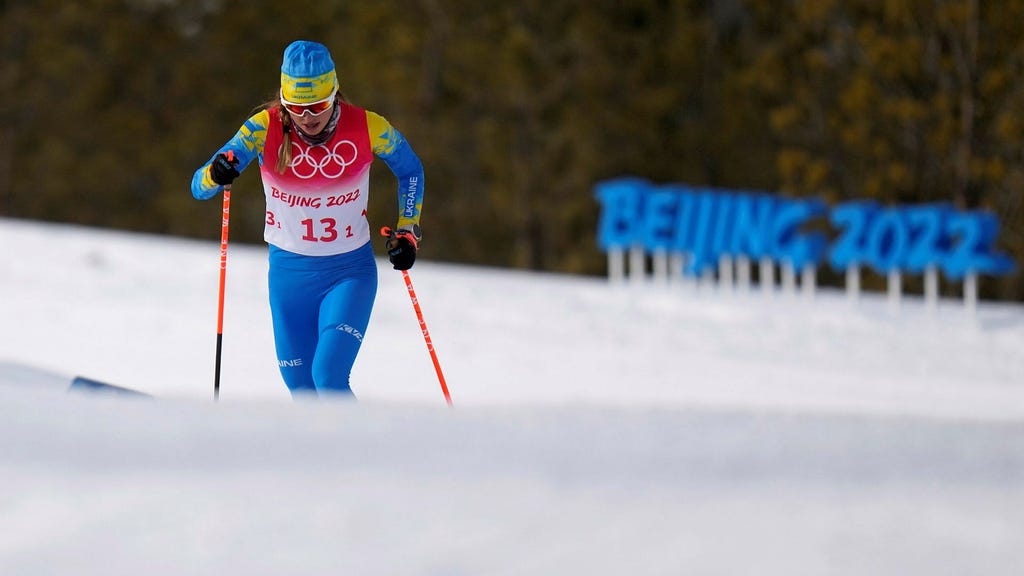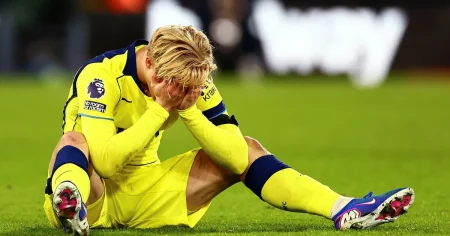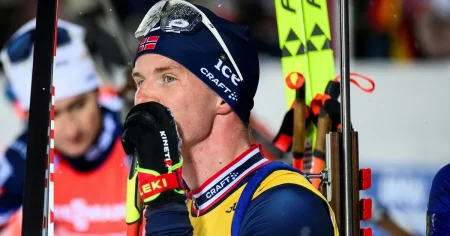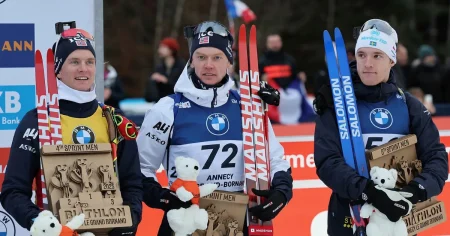The mysterious disappearance of the Ukrainian ski team from the Tour de Ski on New Year’s Day has left organizers puzzled and slightly inconvenienced. Michal Lamplot, the competition director for the International Ski Federation, expressed his bewilderment to Expressen, a Swedish newspaper, stating that the team simply failed to appear at the starting line without any prior notification. While there is no official rule mandating withdrawal announcements, Lamplot pointed out that given the unique nature of the pursuit-style race on that day, with start times staggered based on previous results, advance notice would have been beneficial for logistical purposes. The Ukrainian team’s absence created a ripple effect, impacting the starting order and requiring adjustments to the race proceedings.
The Ukrainian skiers’ participation in this year’s Tour de Ski had been challenging from the outset. Prior to their vanishing act, the team had consistently trailed the pack, occupying the bottom rungs of the leaderboard. Following the New Year’s Eve stage, all three Ukrainian women found themselves in the last three positions, while their sole male representative languished in 90th place. This string of disappointing performances underscores the difficulties faced by the Ukrainian athletes, who may have been contending with factors beyond their control, including limited resources, disrupted training regimes due to the ongoing conflict in their homeland, and the immense pressure of competing on the world stage under such circumstances.
The absence of any communication from the Ukrainian team adds another layer of intrigue to their sudden withdrawal. Lamplot’s statement that there isn’t a specific regulation requiring skiers to formally announce their withdrawal highlights a potential gap in the competition’s rules. While not technically a violation, the lack of notification created unnecessary complications for the organizers, particularly in a pursuit race where starting times are precisely calculated based on previous results. The unexpected absence of the Ukrainian skiers necessitated last-minute adjustments to the starting order, potentially impacting the flow and fairness of the competition for other participants.
This incident raises several questions about the pressures faced by athletes, particularly those from nations experiencing conflict or political instability. The Ukrainian team’s struggles throughout the Tour de Ski, culminating in their unexplained disappearance, suggest that factors beyond physical prowess and technical skill may have played a significant role in their performance and ultimate withdrawal. The ongoing war in Ukraine has undoubtedly created immense challenges for the nation’s athletes, disrupting training schedules, limiting access to resources, and adding a heavy emotional burden to the already demanding world of elite competition.
While the reasons behind the Ukrainian team’s disappearance remain shrouded in mystery, it serves as a stark reminder of the human element in sports and the myriad challenges faced by athletes, particularly those representing nations grappling with conflict and instability. The incident highlights the need for greater support and understanding for athletes navigating extraordinary circumstances, as well as potential revisions to competition rules to address unforeseen withdrawals and ensure fairness for all participants.
In conclusion, the vanishing act of the Ukrainian ski team from the Tour de Ski remains an enigma. Their poor performance leading up to their disappearance, coupled with the lack of any formal communication, paints a picture of a team struggling under immense pressure. While the absence of a mandatory withdrawal notification rule highlights a potential loophole in the competition regulations, the incident underscores the need for greater sensitivity and support for athletes facing extraordinary circumstances. The Ukrainian team’s experience serves as a poignant reminder of the human cost of conflict and the importance of creating a sporting environment that prioritizes both athletic excellence and the well-being of all participants.














